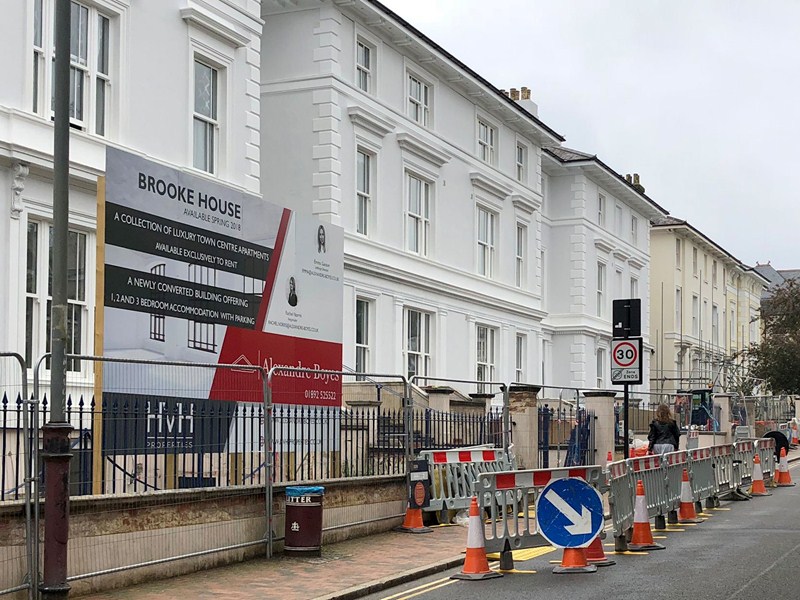Moves are being made to stem the flow of offices in Tunbridge Wells being converted into residential properties with the borough council naming 20 sites that it wants to protect from developers.
In the past five years 22 per cent of office space has been lost causing some businesses to move out of the town centre.
It is estimated another 22 per cent of space is at risk, an issue highlighted by the Times in articles over the past 12 months. This is largely because in 2013 the government relaxed Permitted Development rights.
This made it easier for landlords to turn workplaces into housing as local authorities had little power to stop planning permission being granted.
The policy was supposed to encourage much needed house-building. What it has done is make it almost impossible for any council to block conversions.
Around 320 offices have been converted between May 2013 and March 2017.
The borough council announced this week that 20 large offices around the town centre will be safe-guarded by making what is called an Article 4 Direction. This means anyone looking to convert any of these properties would have to seek planning permission from the council; any application would be assessed against relevant planning policy, and could be refused.
Deputy Council Leader Alan McDermott said: ‘This will help us retain the existing office stock, source provision of new office stock and ensure a mixed and balanced town centre.
‘We think it is necessary. Otherwise we will be a dormitory town people live and work in London. There would be no character.
‘We have got to build more offices and factories.’
The council has been trying to find ways to safeguard office space in town for years. For Article 4 to be used, the local authority needed to demonstrate that ‘exceptional circumstances’ apply, and did so by compiling a studies.
These initial 20 properties were all identified as key office buildings in the town. The council will continue to monitor the situation and has not ruled out further directions in the future.
They will also seek to install further development management policies in their new local plan, which maps out the council’s vision to build 13,840 homes by 2033.
Cllr McDermott said he did not like the Government’s policy on Permitted Development, which he called a ‘quick fix’.
Instead, he considers the new move as an opportunity to bring in start-up companies, particularly in creative and culture industries.
‘We have got to look at starter businesses and smaller firms.
‘We are starting a study to look at our cultural and creative industry. This would include anything from people who make things to the media industry.
‘Our aim is to make it a creative town, that was one of our aims with the culture hub and we think, with the theatre as well.
‘We have other strengths like financial and retail. We want to keep a broad range.’
The council stressed that Article 4 does not mean that buildings can never change, but gives a chance for a ‘fuller consideration’.
Brian Lippard, Chairman of Tunbridge Wells Civic Society, said: ‘We think it is excellent news that the loss of further office space is being resisted.
‘The law which enabled offices to be converted to residential without planning permission has, we feel, had an adverse effect on the town.
‘A prime example is Calverley House which is to become approximately 90 small flats and with no parking.
‘Part of ensuring the economic wellbeing of the town is the provision of employment opportunities and office jobs must be a key element.
But Craig Strong, of trading firm Capital Currencies, was less sure, having himself been twice forced to move offices, due to conversion.
He said: ‘The words horse and bolt immediately spring to mind. Why has this not been invoked sooner? Did it really take a whole raft of businesses to leave Tunbridge Wells followed by a massive knock on effect on cafés, shops and restaurants, before somebody thought of this?
‘But perhaps, on a positive note, this might go a little way in saving our ailing town and its business community.’








